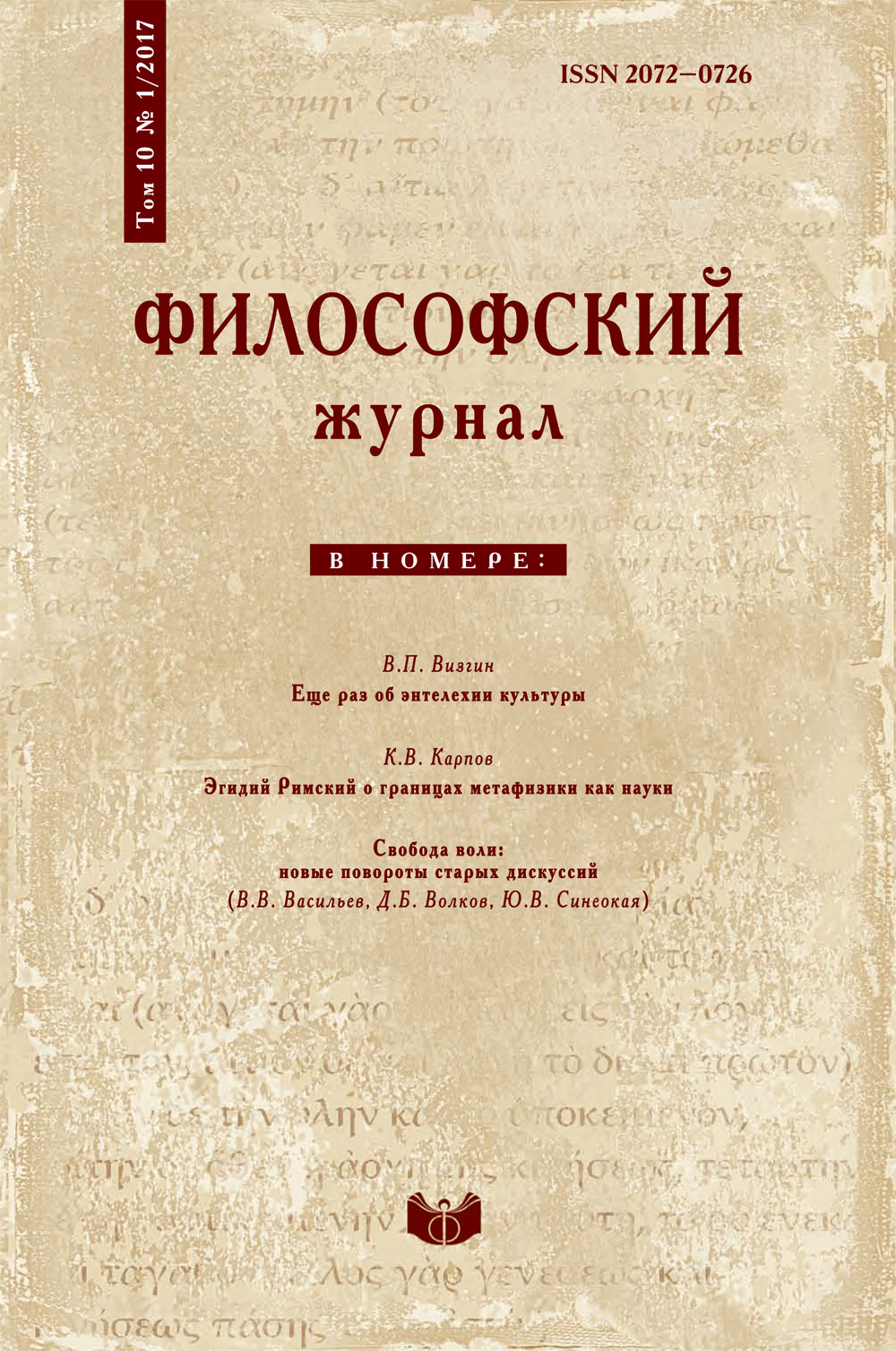Entelechy of culture revisited
DOI:
https://doi.org/10.21146/2072-0726-2017-10-1-5-22Keywords:
Aristotle, entelechy, culture, dialogue, entelechy of culture, teleologyAbstract
The present paper explores the problem of entelechy of culture, mainly taking in consideration the discussion about the dialogue of cultures and the entelechy of culture, which took place in the 1990s. To clarify the meaning of the notion of entelechy of culture, the author also refers to Aristotle as well as to ideas proposed by biologist and philosopher Hans Driesch, historian Georg Knabe, philosopher Alexandre Dobrokhotov, and, on the other hand, by Russian theorists of symbolism and religious philosophy (Innokenty Annensky, Pavel Florensky, Vassily Rosanov). One of the conclusions to be drawn from this study is that those who participated in the memorable discussion on dialogue and entelechy failed to correlate their concept of the dialogue with the existentialist tradition of Martin Buber, Ferdinand Ebner and Gabriel Marcel, outside which it remains unexplained. The author admits that, in Aristotle, entelechy implies a permanent and invariable reproduction of natural forms which can never stop (which follows from the eternity of the world), but he also maintains that it is not legitimate to restrict this concept to pre-Christian cultural context: it is only with the advent of Christianity that the theoretical notion of entelechy, as invented by Aristotle, attains full maturity.






